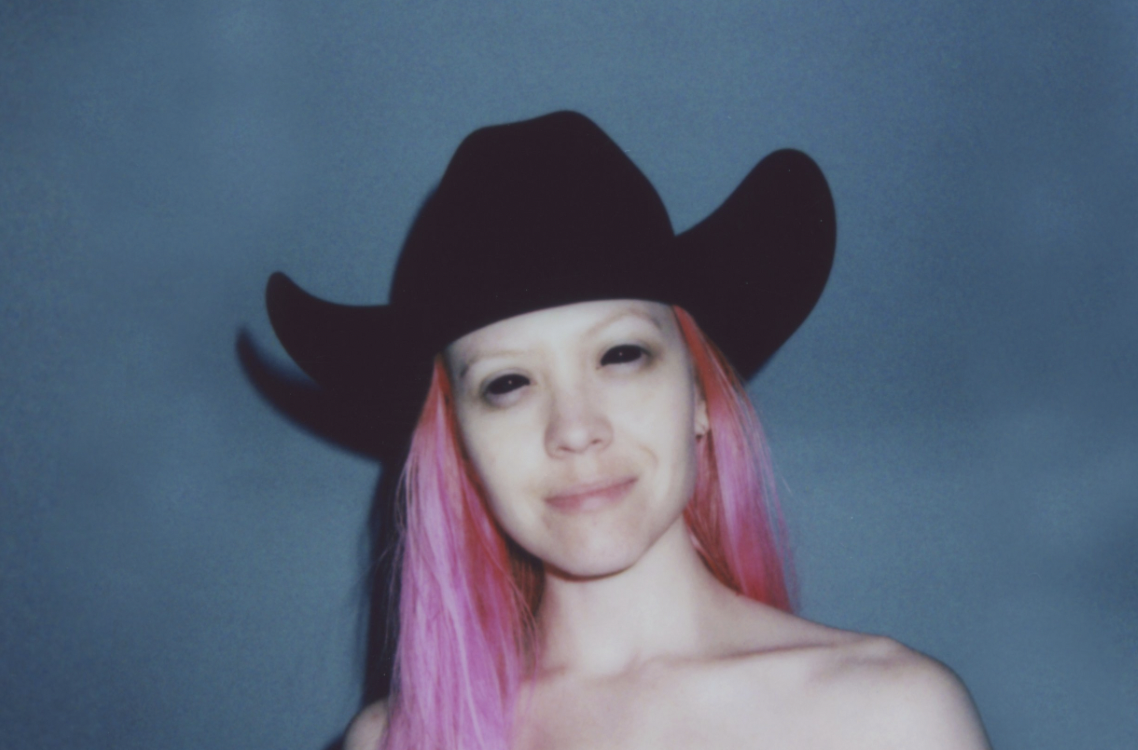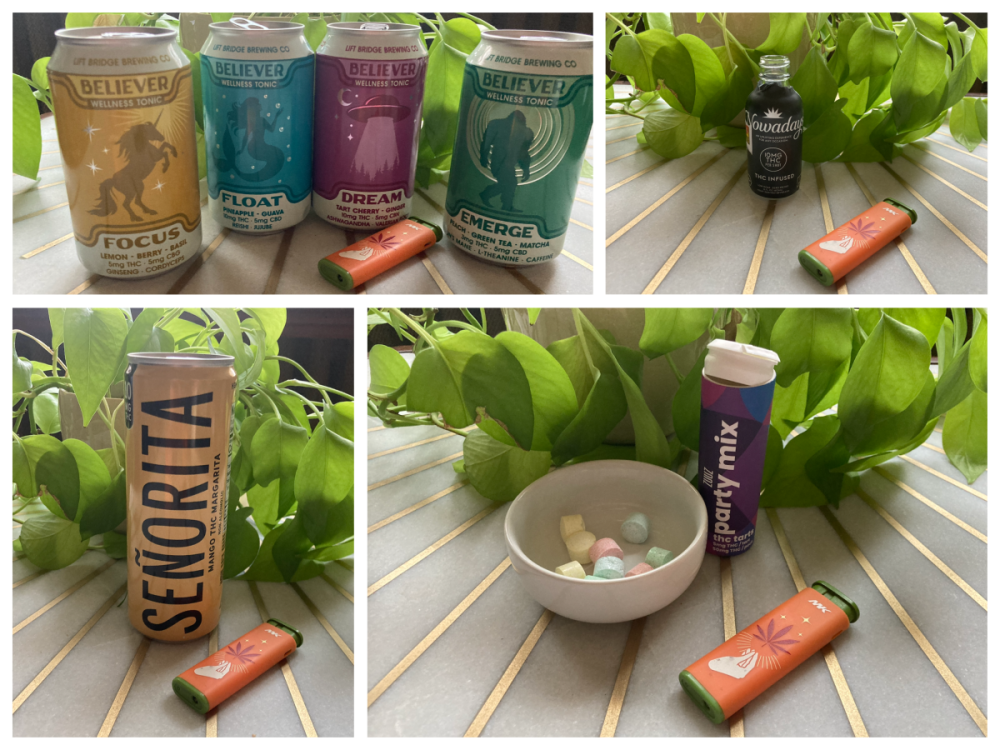KC Rae thought she was done with music. But the songs kept coming.
During breaks from touring with her alt-rock/pop duo Now, Now, Rae (the adopted moniker of Cacie Dalager) came home to the quiet and felt what touring allowed her to momentarily repress: She was physically, mentally, and spiritually drained.
“I thought, ‘Wow, I am using tour to run from my life," she says. "And then when I'm home, everything hits.’ That’s when I started writing.”
This past Friday, Rae released her first solo project, Think I’m Gonna Die. The nine-track LP has been largely finished for more than two years, and the songs, mostly conceptualized around 2018, serve as a capsule from a time of upheaval when Rae says she really did think she was gonna die.
“I was like, my body's just gonna stop,” Rae says. “I was so physically ill, so mentally ill.”
This was a painful period, partly due to traumatic experiences Rae endured from managers and other music industry players—experiences she shared on social media.
“Being female [in this industry], there was so much trauma that I had never dealt with and didn't fully understand,” she says. “I was gaslighting myself the whole time, and no one around me was seeing it.”
Rae and spoke to Racket over Zoom recently—her first interview in five years. She sat bathed in a fuchsia light that played in her orangey pink hair, which cascaded out of a fuzzy, internet-blue beanie. Rae was at her partner’s house; the pair co-own Tart, a digital design firm that did the artwork for Think I’m Gonna Die.
Rae’s songwriting partner and musical counterpart of 17 years, Now, Now's Bradley Hale, drums and plays bass on the album, and the album was recorded in Hale’s parents’ Blaine basement. But Think I’m Gonna Die is Rae’s brainchild, one she feels goes in a different direction than Now, Now might be heading.
“‘Shame’ wasn't the first song I wrote, but it was the first one that felt like my song,” she says. “Like, I have to put this out; it's not even a choice. [But] I wouldn't say it was an easy, natural process. It felt like falling down a mountain.”
That song, the fourth on the record, opens with a warm, wistful guitar riff more akin to mainstream country than to the synthy indie rock of Now, Now’s last album. Rae’s breathy vocals, so close she could be singing in your ear, interlace with a troupe of insistent bass lines, and the original riff joins an emphatic refrain during the chorus: “It’s such a shame / I could have been good to you baby / It’s such a shame.”
There’s a bit of a “lonesome cowboy” vibe to Rae’s lyrics on the project, for which she learned to play the mandolin and banjo. (She plays every instrument on the record apart from Hale’s rhythm section work.) She’s sitting by the phone knowing it won’t ring; she’s lying in a parking lot, listening to the bark of a lonely dog; she’s got a “masochistic imagination,” dreaming of kissing someone who’s “got your mind changing / What’d you go and do that for?”
“There's no game to country music,” Rae says, adding that the Chicks were in heavy rotation in her Walkman growing up, along with Michael Jackson and Avril Lavigne. She even donned a pitch black cowboy hat and jean get-up for the cover shoot. “[It’s not] trying to sound cool. It's just like, this is exactly how I'm feeling," she says.
To be clear, Think I’m Gonna Die isn’t a full pivot to country. Rather, the genre weaves through Rae’s indie pop, coming across stronger on certain songs than others, as she deals with some hard shit. She questions her reality, contemplates disappearing; she thinks the sadness will go away if she ignores it. (It won’t.) At times she sings, heartbroken, directly to a you, but the you is prismatic, reflecting Rae’s discontent back to herself.
And around the time the album was marinating, Rae learned that she is autistic.
“I've always been sensory perceptive. With autism, there are so many transmitters firing all the time. You can be lost in a memory in the present because it feels so intense,” Rae explains. “It happens to me a lot. I'll just be driving looking at the road but I'm in another memory of a different time that I was driving, or the sun will be looking a certain way and I'll see all these other times that the sun was exactly that way. Everything reminds me of every other time that that thing has happened.”
That ability to grasp the specific texture of a memory and translate into music is a superpower of Rae’s.
“Now, Now have always had an uncanny ability to evoke nostalgia without sounding dated; their music existed in this dreamy, liminal space between our memories and our present selves,” says Twin Cities music journalist Andrea Swensson, who has written about the band in the past. “They created something that can't be tethered to any one time period or scene. Their music sounds youthful but also wistful; innocent but also wise. Listening to them feels like packing into a car and gunning it toward the horizon.”
For the project's lead single, “Blockbuster,” Rae slips into a joyous childhood car ride with her cousin. “Can’t get it out of my head / I just want to be happy again,” she practically whispers, the yearning congregating so intensely in her upper register one expects her voice to crack, but it never does.
The memory is bittersweet, but there’s hope in the ability to see it: “Everything that’s happening's gonna happen again / Every time I feel the wind / I think about every time I felt the wind.” These lines are followed by a parade of other environments Rae felt the breeze blowing on that drive to the extinct video rental, a collage of childhood sweetness.
Rae bluntly expresses her concerns about returning to the music industry. She’s wary of the grind of having to keep playing music she’s proud of, but that came from an era she’s moved on from. Ahead of setting a release date for Think I’m Gonna Die, she took meetings with industry people, but decided to release it independently to protect her well-being. That means, among other things, no grueling tours—though she will play the 7th St Entry on December 14.
“No part of me wants to be in the music industry,” she says. “It is a tragic must, but I hate it. Especially being female, being autistic, it is hell.”
The second to last track on the record, “Hymn,” stands apart. Rae’s voice stretches and she seems to sing from a different perspective, a different lifetime. Synths create a chasmic atmosphere as she strums a banjo like a Japanese Koto.
“My grandma's from Japan and I grew up immersed in Japanese culture. I wanted to emulate that sound with a banjo,” Rae explains. The song was the last to be finished, and was written all at once.
“That’s the only song I’ve ever written that felt like catharsis. I have to tap into that really deep, spiritual, ancient feeling to get that sensation,” she says. “That’s the darkest, most intense part of myself, so it feels the most comfortable.”






